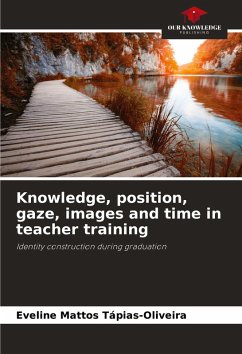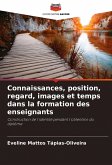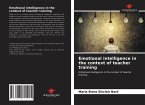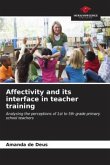'The training of future teachers, like any identity construction, is social; it is also a dialectical act: it emanates from the culture (mediated by the activities carried out in the classroom) to the individual; it also comes from within the individual, who contributes their experiences and knowledge to the culture, and then there is the exchange, always individual, different from person to person, depending on the different rhythms and life histories of each one. (...) If we accept that professional identity can be constructed, that it is neither one nor eternal, and if we accept that it represents our various faces in different communication situations, we have a big world. ) If we realise that professional identity can be constructed, that it is neither one nor eternal, and if we accept that it represents, as images, our various faces in different communication situations, then the degree course is a great figurative world in which the subject's new professional face is constructed. (...) ) Becoming a teacher requires verbalising what you are/learn, or what you can be, or what you see/perceive ways of being; it is in your constitutive space-time in the classroom, in your dialogical-ideological word, when you encounter the active responsive attitude of your peers in classroom interaction, that echoes and links are formed and that the student reflects/refracts and builds themselves professionally.' Eveline M. Tápias-Oliveira
Bitte wählen Sie Ihr Anliegen aus.
Rechnungen
Retourenschein anfordern
Bestellstatus
Storno








